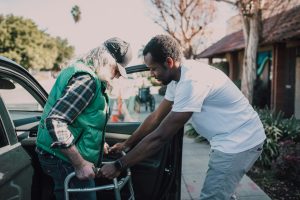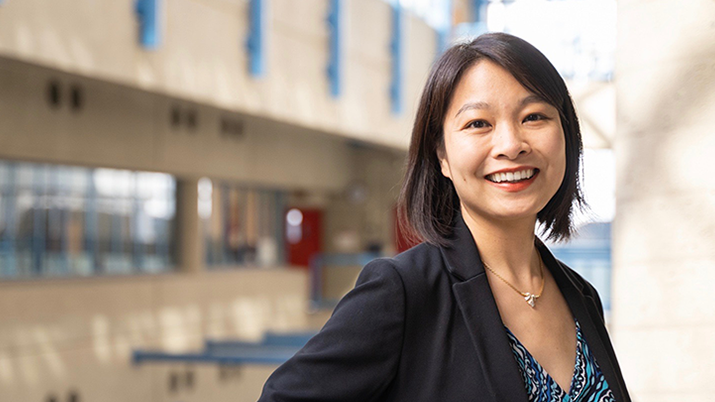

Keeping chronic loneliness at bay could be as simple as incorporating one act of kindness a day into your self-care routine, according to new psychology research.
Led by Yeeun Archer Lee during her time as a PhD student at the University of British Columbia, the study found that when a person does something good for someone else — like checking in on a friend or offering a seat to a stranger on the train — and keeps this habit up, feelings of loneliness decrease while social interactions increase.
“Our study suggests an accessible, effective way for people to overcome social isolation,” says Lee, who is now continuing her research at the University of Toronto’s Population Well-being Lab.
For the study, 388 young adults in Vancouver reported how many social interactions they had and how lonely they felt for three days. Then each day for two weeks, they initiated one of three behaviours: a regular act of kindness (e.g. calling a friend who needs emotional support), an anonymous act of kindness (e.g. making an anonymous donation online), or a break (e.g. going for a walk or listening to a song). Participants who practiced regular acts of kindness — when they had direct contact with recipients — reported feeling less lonely and an increase in social interactions, especially with friends and family, even after the experiment ended.
Overall, the results show that initiating this pro-social behaviour — when a person does something for the benefit of another rather than oneself — has long-term positive effects on mental health, well-being, and relationships.
“Overcoming loneliness isn’t just the responsibility of the individual. We need effective policies and services to improve social connection at the population level. In the meantime, our study shows that an act of kindness is a simple tool that people can use to help others, and in turn help themselves feel less lonely.”
“People experiencing chronic loneliness can shift into self-preservation mode. They become more self-focused and hypervigilant when interacting with others, and withdraw further socially,” says Lee. “Pro-social behaviour breaks this vicious cycle by empowering people to contribute positively to the world around them.”
She says that when you initiate an act of kindness, you shift the focus from self to other and look outward for opportunities to meet people’s needs. This leads to positive reactions from others and feeling compassion for rather than threatened by them. With your guard now lowered, you are more likely to engage with people, thereby improving social connections and mitigating social anxiety.
“We’re not saying to fill your day doing things only for others — this could lead to burnout and compassion fatigue. And we’re not saying to abandon your self-care routine, either — things like napping, journaling, and otherwise ‘taking a break’ are still important. It’s about balance.”
Short-term feelings of loneliness aren’t inherently bad, says Lee. Think of them as hunger pangs — they are signals that we need more social connection. There are other misconceptions: that loneliness is primarily an issue for older adults and for people who lack social skills. But chronic loneliness is also a result of societal and cultural structures, and some studies suggest that young adults are at a greater risk than other age groups.
It is also an urgent public health issue, with some experts saying we are living through a loneliness epidemic. In her current research at U of T, Lee is investigating global trends to understand if this is indeed the case, and if so, what factors may be at play — whether those are health and economic disparities, cultural reasons, political polarization or the pandemic, to name a few.
A version of this announcement was originally published on the University of Toronto Faculty of Arts & Science website.


